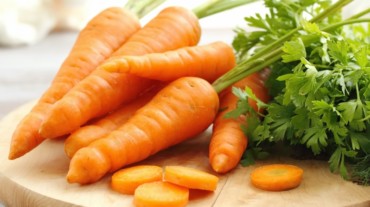
Winter is almost about to end, and we are going to terribly miss those breezy evenings and piping hot treats. And of course, there is no substitute for those amazing, fresh and healthy winter vegetables that are oh-so-crunchy to taste! Not only are they super colourful, but at the same time, they are packed with vitamins, minerals, and antioxidants.
Before winter bids a silent goodbye and the scorching summer sets in, try to make the most of the season’s most awesome vegetables.
Parul Malhotra Bahl, a clinical nutritionist and a certified diabetes educator, handpicks 5 such winter vegetables and tells us about their benefits.
This deep red-coloured, sweet vegetable doesn’t just look gorgeous, but is a rich source of fibre, folate, manganese, iron, and vitamin C. This nutrient-dense winter essential is known for its health benefits for heart and exercise performance, says Bahl.
“Beetroots can lower blood pressure, which may lead to a reduced risk of heart disease and other ailments. This root veggie can also improve oxygen use, stamina, and exercise performance. They are usually well-tolerated but contain oxalates, which may lead to kidney stones and FODMAPs, which may cause digestive issues. Thus it’s always best to cook (steam or boil) beets before consumption,” she adds.
Enjoy them in salads, soups, juices, smoothies, but make sure you don’t miss out on them.

Bitter and spicy-flavoured green leafy vegetables are a must-have during the winter season. Mustard greens (also called sarson in Hindi) and fenugreek greens (methi in hindi) are low in calories and rich in fiber and micronutrients, particularly vitamins C and K.
“A good dose of these green leaves during the winter season will protect you from cold and flu, as they are rich in antioxidants. They also help boost your immunity. Being bitter, it is better to have them cooked after boiling or stir fried. If you are a North Indian, how can you miss relishing sarson ka saag with makki ki roti and methi parantha with curd?,” shares Bahl.
Relish these sweet and crunchy vegetables till they last. Loaded with essential vitamins, minerals, and antioxidants, both these carrots have amazing health benefits to offer.
“Red carrots provide biotin, fiber, potassium, vitamins K, B6, and C, and the trace element molybdenum, an essential mineral just like iron. This important element activates key enzymes in your body that helps it rid itself of certain toxins.
Black carrots have generous amounts of carotenoid anthocyanin, which makes them more antioxidant-rich,” shares Bahl.
Select Topics of your interest and let us customize your feed.
PERSONALISE NOWAlso Read: Nosh on Kanji, the ‘queen of fermented drinks’, this winter

Both types of carrots can be used to make carrot halwa. Use jaggery instead of white sugar, and just milk and nuts. You could also have them raw, juiced and even cooked (stir fried, baked, grilled).
Most people stock up on these healthy winter vegetables, and freeze them to use during the summer season. According to Bahl, these sweet and delicious seeds are packed with nutrients. They are fairly low in calories, rich in antioxidants, and contain just about every vitamin and mineral your body needs.
“Green peas are one of the best plant-based sources of protein, which is a major reason why they are so filling. They contain a high amount of fibre, which makes them great for weight management and blood sugar control. Being rich in soluble fibre, they are beneficial for bowel movement and to keep your gut bacteria healthy,” says Bahl.
It’s always best to have peas cooked and in small portions at a time, as they do contain some anti-nutrients that may cause digestive distress.

This spicy, peppery and even sweet-tasting root vegetable is harvested in the winter season. Radish is a good source of antioxidants like catechin, pyrogallol, vanillic acid, and other phenolic compounds. These root vegetables also have a good amount of vitamin C, which acts as an antioxidant to protect your cells from damage.
“They are low in calories, glycemic index, and high in fibre. This makes them beneficial to manage your weight and regulate your blood sugar levels. Radish also has protective properties that can help your heart, and can also enhance liver function,” says Bahl.
Have them cooked or raw in salads and enjoy them till they last.
Here’s a pro tip from Bahl. She says, “Ferment carrots, radish, and beet in salt water. They act as natural probiotics and are beneficial for your gut health.”